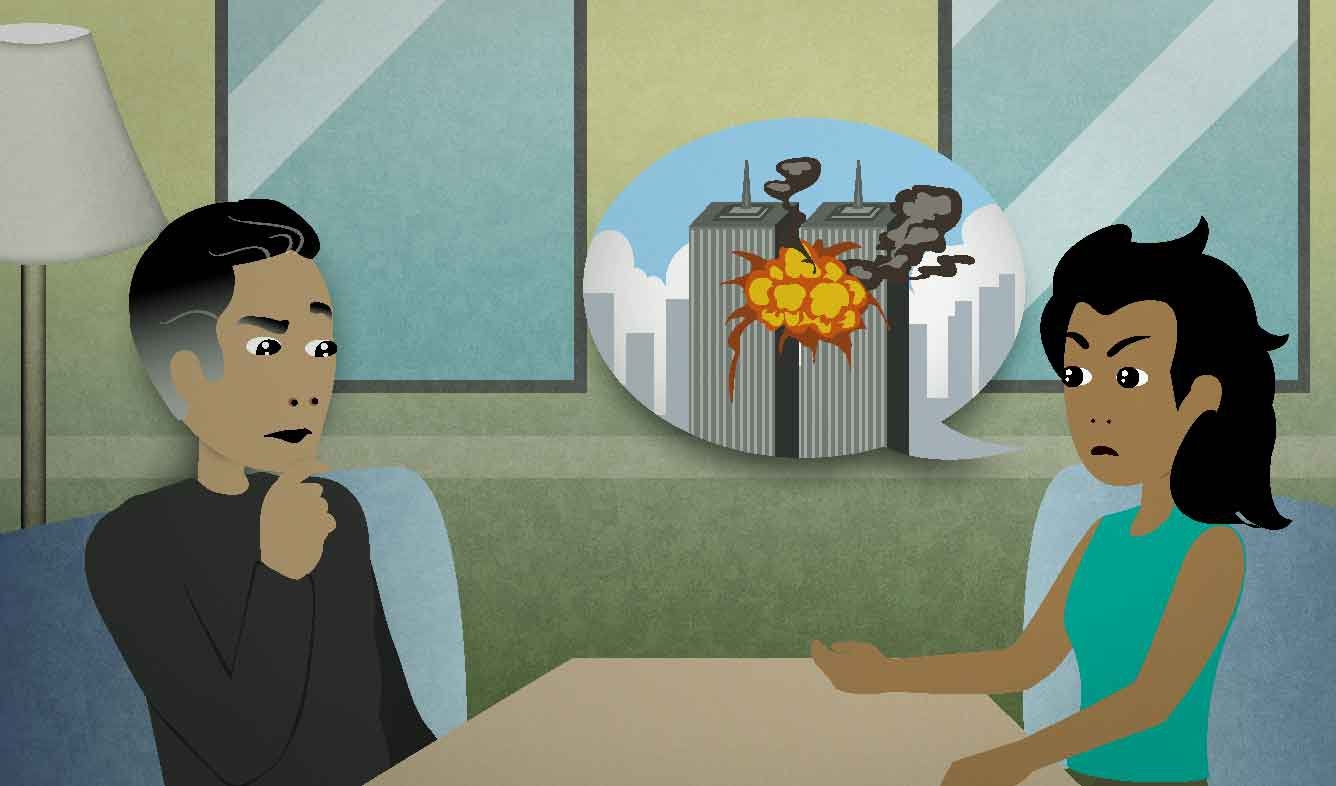“I don't really go for conspiracy theories.”
You're talking to a neighbor who thinks that the U.S. government planned the 2001 attack on the World Trade Center in New York. You don't think that's true. You say:
I don't really go for conspiracy theories.
Want Video and Sound? Follow us on YouTube

(someone) doesn't go for (something)
"I don't go for ___" means "I don't enjoy ___." For example:
I don't go for all that fancy stuff. I like a good, old-fashioned meal.
You can also use this phrase to explain that someone doesn't accept something. For example:
You'd better be prepared when you go in to talk to Marjorie; she doesn't go for excuses.
conspiracy theories
If you think that a group of people secretly did something evil, that idea is a "conspiracy theory".
Some examples of conspiracy theories include:
- aliens have visited Earth but the world leaders are keeping it a secret
- drug companies already have cures to many diseases but they keep them hidden so that they can keep making money
The phrase "conspiracy theory" sounds negative. So if someone says that one of your ideas is a conspiracy theory, you might disagree:
A: That's just a silly conspiracy theory.
B: No it's not! It's a proven fact! Look it up.
